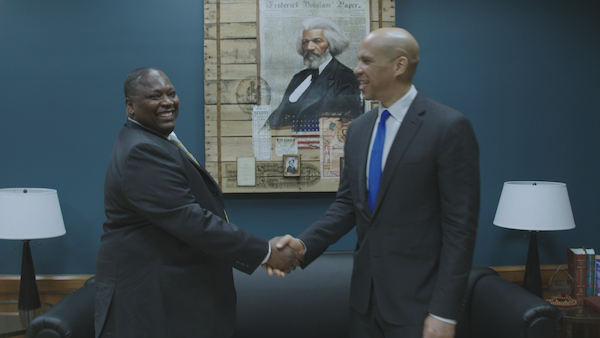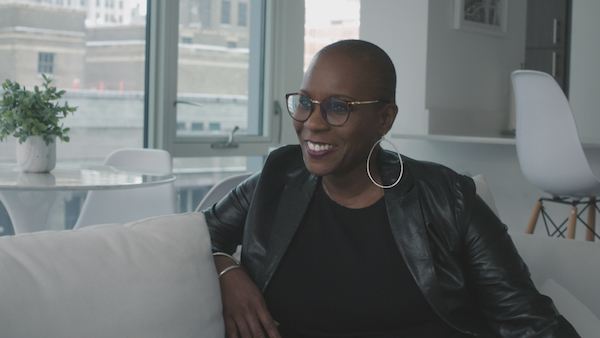Documentaries are great at pointing out issues and problems. Offering solutions is another matter. The Third Strike tackles a major injustice: mandatory prison sentencing required by federal “three strikes” laws. The movie also offers a sliver of hope in the form of The Decarceration Collective (TDC), a Chicago non-profit that tries to gain clemency for nonviolent drug offenders.

The Third Strike profiles convicts who have suffered from drug-related mandatory sentencing—like Ismael Rosa, who was arrested in 1985 and 1987 for possession. Arrested again in 1994, he received a life sentence. In heartfelt interviews, his daughter Venessa describes how his family has suffered since his imprisonment.
Chicago-based attorney MiAngel Cody, a TDC founder, explains that three strikes laws were written to punish dangerous drug dealers. Instead, they have been used to send minor offenders to prison for life, even if they have never been in prison before. In federal drug cases, there is no possibility of parole.
What’s worse, the federal anti-drug three strikes law uses only drug violations. Murder, arson, and other violent crimes don’t count. A murderer might spend less time behind bars than these drug violators.
News clips of Senators Richard Durbin, Cory Booker, and Jeff Sessions (during his 2017 Attorney General nomination hearings) lay out opposing arguments about mandatory sentencing, Sessions managing to take both pro and con positions depending on the political weather.
But the heart of The Third Strike, the debut documentary for director Nicole Jones, consists of interviews with convicts and family members. One prisoner was sentenced to life at the age of seventeen. Edward Douglas, another prisoner, was arrested for pot in 1988. When Jones caught up with him, he had served fifteen years of a life sentence. Jones talks with his family members to show how his absence has affected them.
David Asma, a public defender investigator, points out other ways in which the three strikes laws mete out justice inconsistently. He also notes that the laws have failed to reduce drug trafficking. Prosecutors may offer plea bargains to persuade defendants to become informants, an awful and potentially fatal choice. And one main impact of three-strikes laws is that they apply disproportionately to the poor and to ethnic minorities.

Articulate and forceful, Cody succeeds in helping free Douglas and others through presidential commutations and other methods. Jones photographs Cody and Douglas as they travel to Washington to meet with Booker, who helped introduce sentencing reform provisions to the First Step Act that was passed in 2018.
The director follows a few of the convicts who were released thanks to the efforts of TDC. Eric Wilson takes up welding, Tyrie Bell becomes a truck driver. Watching them try to cope with a sometimes baffling world is heartbreaking.
The Third Strike addresses a vitally important topic, but it is at times rambling and confusing. Ruthless editing is needed focus the documentary on the essential points the filmmakers want to make. But even with its flaws, the movie will convince viewers that changes need to be made to the criminal code. Just one example: how can convicts still be suffering life sentences for marijuana possession when states are overwhelmingly dropping restrictions against the drug?
The Third Strike had its world premiere at Cinequest in San Jose, CA, on March 7th. It has been selected for the Martha’s Vineyard African American Film Festival and the Black Harvest Film Festival. Photos courtesy IFSO Productions.


